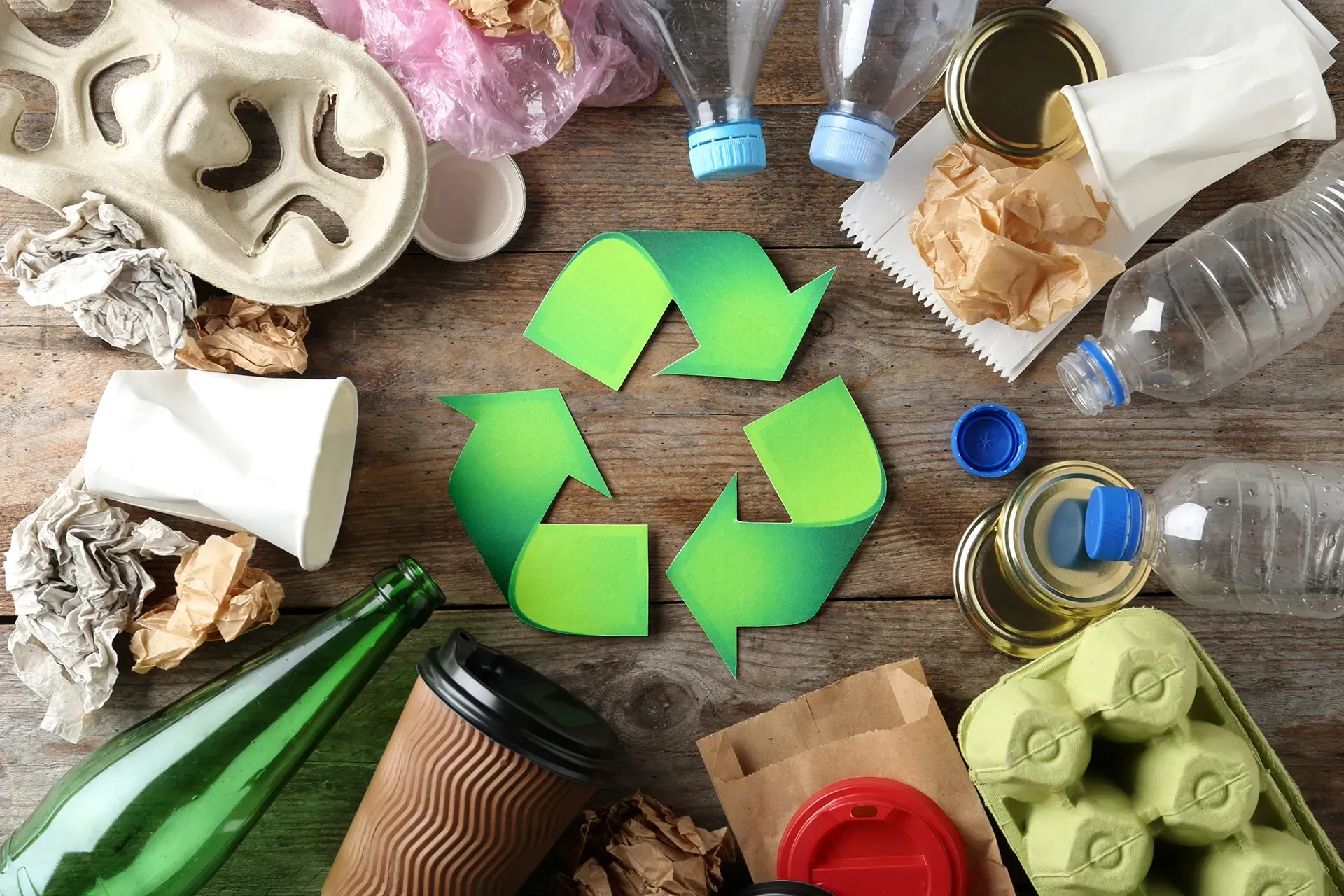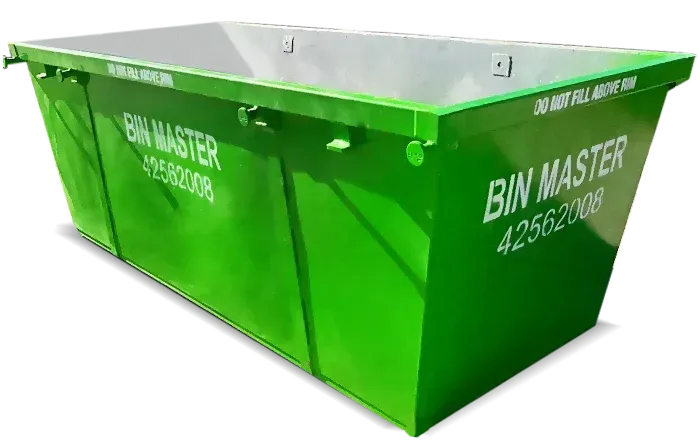Australia and Recycling Efforts: How Households Can Make a Difference
How much of what you throw away could have been reused, repurposed, or recycled? Waste reduction in Australia goes beyond just sorting rubbish. It’s about making smarter choices, cutting down on waste, and supporting recycling initiatives that protect our environment.
These efforts extend beyond individual actions. While national programs focus on reducing landfill waste and improving recycling rates, the active participation of individual households is essential to ensuring these efforts succeed.
This blog explores how recycling works in Australia, highlights the importance of household efforts and offers practical tips to make recycling a seamless part of everyday life.
The Current State of Recycling in Australia
Australia’s recycling efforts are improving, but the country still has a long way to go to meet its waste control goals. Every year, Australians generate an enormous 78 million tonnes of waste, with the average person disposing of half a tonne and a typical household discarding 1.2 tonnes annually. While recycling systems are in place, only around 60% of this waste is properly recycled, meaning millions of tonnes of reusable materials still end up in landfills.
One of the biggest challenges is that many recyclable items never reach material recovery facilities, where they can be sorted and reused. Despite growing awareness and improved recycling initiatives, only 9-16% of plastics are actually recycled, while the vast majority are either sent to landfills or end up polluting the environment. In 2018-2019, a staggering 85% of discarded plastics were landfilled, highlighting the urgent need for better waste disposal.
To tackle this issue, both federal and state governments have set ambitious targets to improve recycling rates. The Australian Packaging Covenant Organisation (APCO) aims to recycle or compost 70% of plastic packaging by 2025, while the government has raised overall recycling and waste reduction targets to 80% by 2030.
To support these goals, the government is implementing strategies, including:
- Maximising the value of waste by converting it into reusable resources
- Developing a traceability framework to build confidence in recycled materials
- Collaborating with industries to ensure products are managed responsibly from production to end-of-life
While these initiatives are a step in the right direction, their success depends on everyday Australians doing their part.
How Waste Collection Works in Australia
Local councils oversee the waste collection process, working with private and public contractors to pick up household waste. Kerbside recycling bins make it easy for households to manage waste through a colour-coded system. Most states and territories follow these standard lid colours:
- Red-top bin – For general waste that can’t be recycled or composted.
- Yellow-top bin – For recyclable items like paper, plastic containers, glass bottles, and cans.
- Green-top bin – For organic waste, such as food scraps and garden clippings.
Once collected, waste is transported to sorting facilities, where materials are separated for recycling, composting, or landfill disposal.
Handling Large Waste Volumes
For bigger clean-ups, such as moving house, home renovations, or major decluttering, standard household bins often aren’t enough. Skip bins provide a convenient solution for managing bulky waste efficiently and ensuring proper disposal. These large waste containers allow for easy collection and organisation, preventing scattered rubbish and streamlining the clean-up process.
Beyond convenience, skip bins also play a vital role in environmental sustainability. Many waste disposal services sort and recycle materials from skip bins, reducing landfill waste and promoting responsible disposal. They are particularly useful for handling heavy and oversized waste, such as furniture, construction debris, and garden materials, which cannot be accommodated in regular bins.
Using a skip bin also reduces the need for multiple trips to the tip, saving time, fuel, and effort. Instead of dealing with overflowing bins or struggling with waste disposal logistics, hiring a skip bin provides a hassle-free, eco-friendly solution. Whether tackling a home project or a large-scale clean-up, skip bins offer an efficient and responsible way to manage waste effectively.
Common Household Recycling Mistakes
Recycling is a crucial step in reducing waste and protecting the environment, but many people unknowingly make errors that can contaminate recyclable materials. Here are the common recycling mistakes and how to avoid them.
- Wishful Recycling (Wishcycling) – Tossing items in the recycling bin without checking if they’re actually recyclable can lead to contamination and waste.
- Not Cleaning Recyclables – Food residue on containers like jars and cans can spoil entire batches. A quick rinse ensures materials remain suitable for processing.
- Recycling Plastic Bags Improperly – Soft plastics like grocery bags can jam recycling machinery. Instead, take them to designated drop-off points at supermarkets.
- Mixing Non-Recyclables – Items like greasy pizza boxes, coated paper, and certain glass types (mirrors, ceramics) aren’t recyclable in most programs. Be mindful of what you toss in.
- Ignoring Local Recycling Rules – Recycling guidelines vary by location. Stay updated with your local waste management policies to avoid mistakes and recycle effectively.
Recycling in Australia: What Can and Can’t Go in the Bin?
Understanding what materials are accepted—and which ones can cause contamination—helps improve recycling efficiency and protect the environment.
What Can Be Recycled?
Many common household items are recyclable, but they must be clean and correctly sorted. Here’s a breakdown of what you can safely place in your bin:
1. Paper and Cardboard
Newspapers, magazines, office paper, and cardboard boxes are widely accepted. However, they must be clean and dry—greasy pizza boxes, food-stained paper, and wet cardboard should be disposed of differently.
2. Hard Plastics (Recycling Symbols 1-7)
Rigid plastics, such as soft drink bottles, milk jugs, and takeaway containers, can be recycled. Always check for the triangle recycling symbol with numbers 1-7 to ensure they’re accepted.
3. Glass Bottles and Jars
Glass jars and bottles (clear, green, and brown) are fully recyclable, but they should be rinsed and free from food residue. Items like drinking glasses, mirrors, and ceramics do not belong as they have different melting points.
4. Metal Cans and Aluminium Foil
Aluminium and steel cans—including soft drink cans, canned food tins, and aerosol containers—are easily recyclable. Scrunched-up aluminium foil (clean and free from food) can also be recycled.
5. Cartons (Milk, Juice, and Long-Life Containers)
Milk, juice, and long-life food cartons are recyclable, but their acceptance varies by location. Some councils require them to be taken to designated drop-off points, so it’s best to check with your local recycling guidelines.
What Can’t Be Recycled?
Certain items may seem recyclable but can actually cause contamination or damage to recycling machinery. These materials should be disposed of properly through alternative methods.
1. Soft Plastics (Plastic Bags and Wrappers)
Plastic bags, bread bags, chip packets, and cling wrap are not accepted as they can get tangled in sorting machines. Instead, take them to supermarket collection points for soft plastic recycling.
2. Food and Organic Waste
Food scraps, leftovers, and garden waste should never go in the recycling bin. Instead, use a compost bin or council-provided green waste bin for responsible disposal.
3. Polystyrene and Foam Packaging
Takeaway food containers, coffee cups, and foam packaging (like those found in appliance boxes) are not easily recyclable through standard systems. Some specialised drop-off locations accept polystyrene for recycling.
4. Clothing and Textiles
Old clothes, shoes, and fabrics should not be placed in recycling bins. Instead, donate them to charities or look for textile recycling programs to give them a second life.
5. Hazardous Waste (Batteries, Electronics, and Chemicals)
Batteries, e-waste (like old phones and computers), and chemicals require special disposal to prevent environmental harm. Many councils and retailers provide designated drop-off points for safe disposal.
How Households Can Improve Their Recycling Habits
The importance of waste management cannot be overstated when it comes to improving household recycling efforts. By adopting these simple habits, you can contribute to a more sustainable environment and help improve the effectiveness of recycling programs:

Sort Your Waste Properly
Separate recyclables such as paper, plastic, glass, aluminium cans, and cardboard into the appropriate bins to ensure they can be processed efficiently.
Rinse Containers Before Recycling
Clean food and drink containers before placing them in the recycling bin to prevent contamination and improve the quality of recyclable materials.
Make Recycling Bins Accessible
Position recycling bins in convenient locations around your home to encourage regular use.
Avoid Contaminating Recyclables
Keep non-recyclable items like out of the recycling bin, as they can disrupt the recycling process.
Choose Products with Less Packaging
Opt for items with minimal or recyclable packaging to reduce waste at the source.
Use Reusable Alternatives
Swap single-use plastics for reusable shopping bags, water bottles, coffee cups, and containers to minimise waste.
Compost Organic Waste
Compost food scraps and garden waste to reduce landfill contributions while creating nutrient-rich soil for your garden.
Educate Your Household
Teach family members and housemates about proper recycling habits to ensure everyone plays a role in reducing waste.
Why Proper Recycling Matters
Landfills are filling up fast, and as waste continues to grow, so does its impact on the environment. One of the biggest contributors is food waste, which accounts for around 3% of Australia’s total greenhouse gas emissions—equivalent to the entire aviation industry.
When organic waste is dumped in a landfill, it decomposes without oxygen, releasing methane (CH₄)—a greenhouse gas 25 times more harmful than carbon dioxide (CO₂) in trapping heat. But the problem doesn’t stop there. Food waste mixes with other landfill materials, creating toxic sludge that can seep into the soil and water supply, leading to long-term environmental damage.
Adding to this issue is the transportation of heavy organic waste, which requires large trucks that burn fossil fuels and generate further emissions, increasing the overall carbon footprint.
Reducing Waste for a Sustainable Future
While landfills may seem like the easiest solution, they are not sustainable. Recycling and waste reduction play a key role in easing the strain on landfills, cutting down pollution, and making waste management more efficient.
But recycling isn’t just about individuals sorting their waste — it’s part of a larger movement towards sustainability. When households and communities participate in recycling initiatives, they contribute to a circular economy, where recycled materials are not discarded.
This shift not only reduces the demand for new resources but also lowers environmental harm, supports waste reduction efforts, and fosters a culture of sustainability. By managing the waste generated by each person more efficiently, we can help conserve valuable resources and create a cleaner, greener future for all.
Conclusion
Recycling in Australia is a shared responsibility that starts at home. Every small effort, from cutting down on food waste to sorting rubbish correctly, plays a part in reducing landfill and protecting the environment. When we make mindful choices, we help protect Australia’s natural beauty and resources for generations to come.

Bin Master Skip Bins offers a wide range of skip bin and skip bag sizes for different waste removal needs at great rates. Whether it's household waste, construction debris, or green waste, we have a suitable skip solution available for you.
